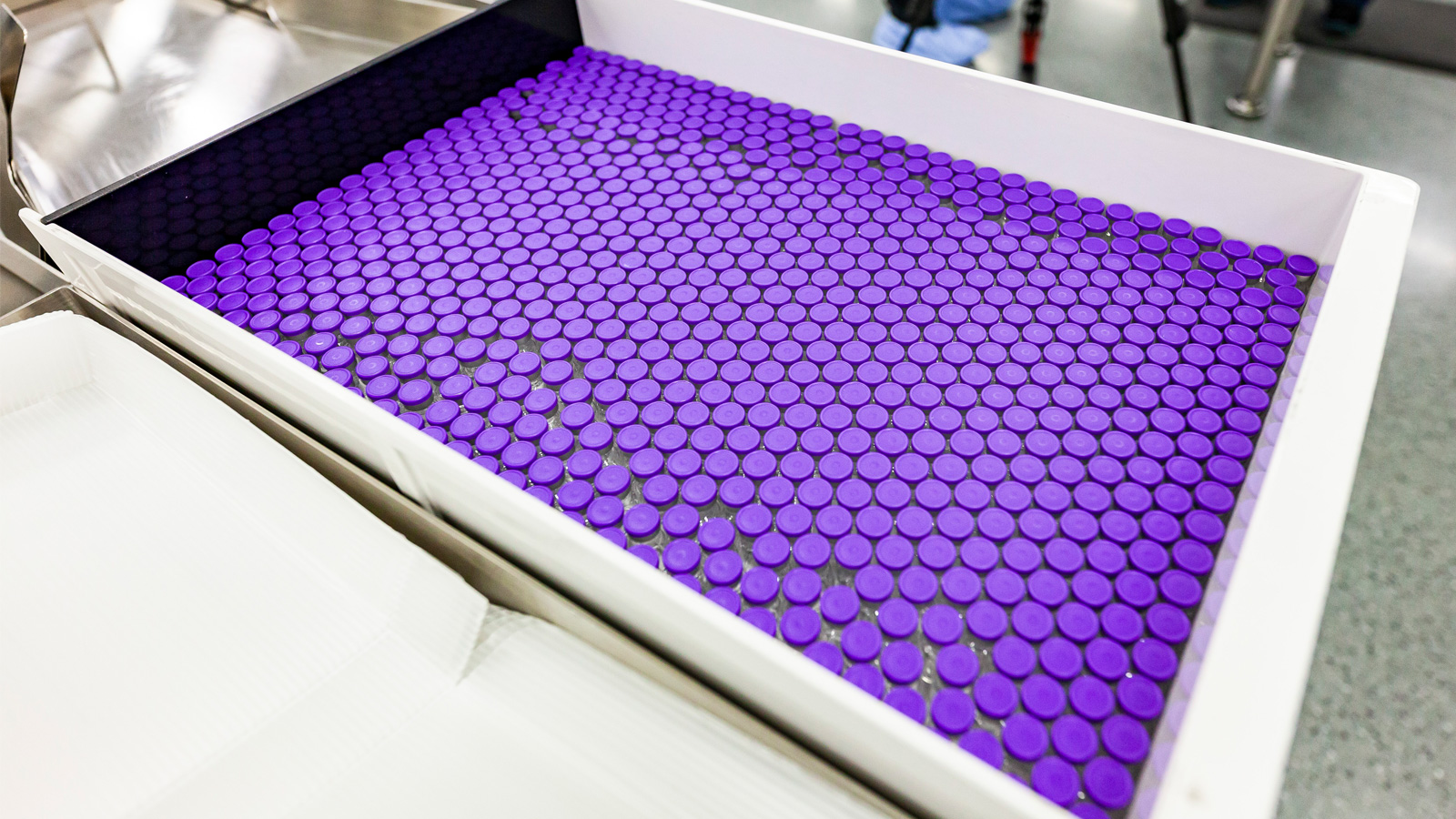Distributing Our COVID-19 Vaccine to the World

An Open Letter from Pfizer Chairman and CEO Dr. Albert Bourla
Every day, I am asked about how Pfizer and our partners at BioNTech will distribute our COVID-19 vaccine now that it has begun to be authorized by regulators in different countries. People have questions about the process, the storage logistics and everything in between. But the underlying question is always the same: How will Pfizer and BioNTech ensure a seamless distribution of our vaccine?
More than 70 million cases of COVID-19 have been recorded globally, and that number is rising at an alarming rate. With the pandemic still raging, our vaccine will be in high demand and, upon authorization or approval, rapidly utilized to help beat back the virus. Recognizing this urgency, we have been planning for distribution for months and are continuing to work around the clock, so we can bring the vaccine to the world as quickly, efficiently and equitably as possible.
It is important the public understands some key points about how we are making this happen.
1. We’ve pioneered solutions to distribution and storage requirements
In the last few months alone, Pfizer has developed cutting-edge packaging and storage solutions to meet the needs of the varied locations that will be distributing the vaccine - whether they are in a major cites or rural towns. Our engineers created specially designed, temperature-controlled shipping containers (that we call “shippers”), which contain GPS temperature enabled trackers for continuous, real-time location and temperature monitoring and can maintain required temperature conditions for up to 10 days unopened. We will have a Pfizer 24/7 control tower monitoring and tracking all shipments to ensure each shipments gets to where it needs to go at the right time and at the right temperature and take action if needed along the way. Once opened, the shippers can be used for temporary storage for up to 30 days, if the units are re-iced every five days – effectively making them temporary deep freezers. Additionally, vials containing our vaccine can be stored at refrigerator temperatures (2-8 degrees Celsius / 35 - 46 degrees Fahrenheit) for five days once out of the shippers. These specialized thermal shippers are roughly the size of a carry-on suitcase and much like a suitcase, can be quickly and easily transported globally.
2. Our distribution methods are practical, reliable and proven
Since the early days of the pandemic, we’ve invested in building and refining the necessary infrastructure to ensure the safe and secure distribution of our vaccine. At its core, our distribution approach involves sending shipments of our vaccine directly to sites when they need them, and not a day sooner. The vaccines will be shipped by air to major hubs within a country or region and then transported by ground to dosing locations. In the U.S., we expect to get our vaccine from our manufacturing facilities to any point of vaccination within two days. We know our approach works because throughout our Phase 3 study, we successfully delivered our vaccine to more than 44,000 people at 150 clinical trial sites in 6 countries and across 39 U.S. states.
3. We’re employing Pfizer know-how from start to finish
Pfizer was founded in 1849, and this is not the first time we have successfully addressed time-sensitive production and distribution challenges. During World War II, for example, Pfizer manufactured 90 percent of the penicillin that was shipped to Allied troops on the front lines. Today, Pfizer makes and distributes annually more than 200 million doses of vaccines to more than 165 countries around the world.
Our successful 171-year track record gives us tremendous confidence in our ability to safely and effectively, manufacture and deliver large quantities of our COVID-19 vaccine. Over the last several months, we have activated Pfizer’s extensive manufacturing network, including thousands of highly skilled workers in multiple locations. Our ability to directly ship from our facilities to points of use reduces the logistical challenges and allows for comprehensive, tight oversight and control.
My hope is that these details alleviate any concerns surrounding the manufacture and distribution of our COVID-19 vaccine and answer some of the questions that my colleagues and I are frequently asked. As always, we will continue to work diligently to ensure that Science Will Win in our collective battle against COVID-19.
Pfizer-BioNTech COVID-19 Vaccine has not been approved or licensed by FDA, but has been authorized for emergency use by FDA, under an EUA to prevent Coronavirus Disease 2019 (COVID-19) for use in individuals aged 6 months through 11 years of age. The emergency use of this product is only authorized for the duration of the declaration that circumstances exist justifying the authorization of emergency use of the medical product under Section 564(b) (1) of the FD&C Act unless the declaration is terminated or authorization revoked sooner.
02.17.2026
02.05.2026
02.04.2026
02.02.2026
01.27.2026

